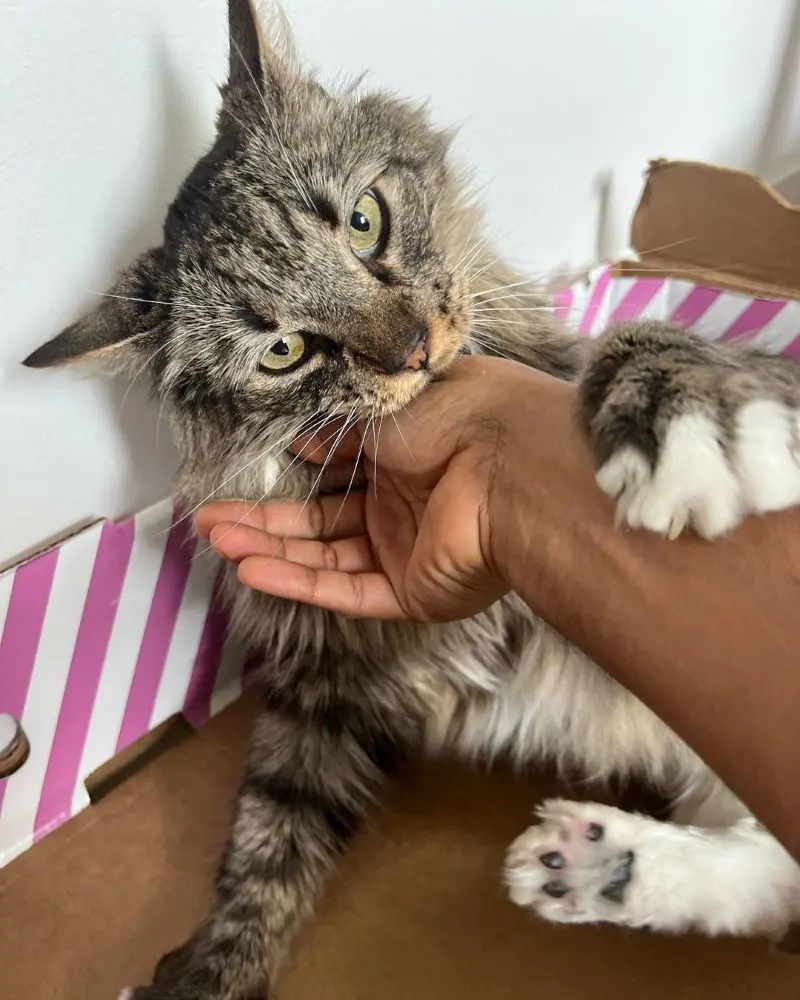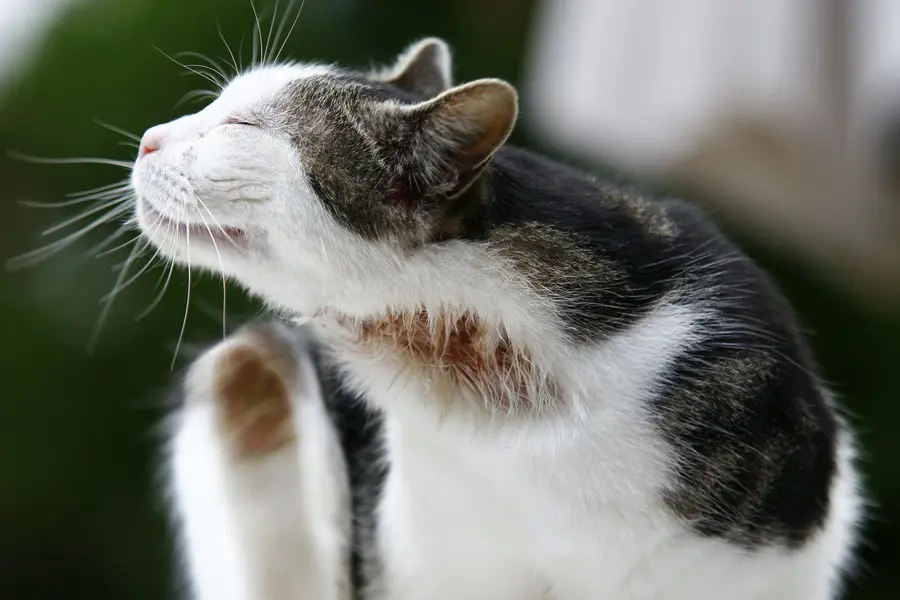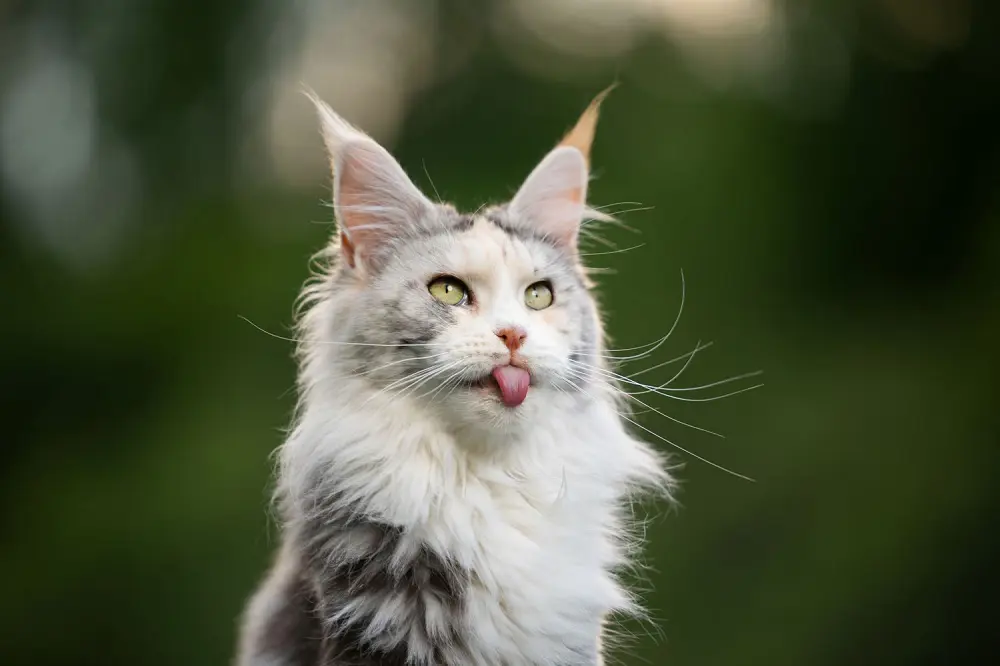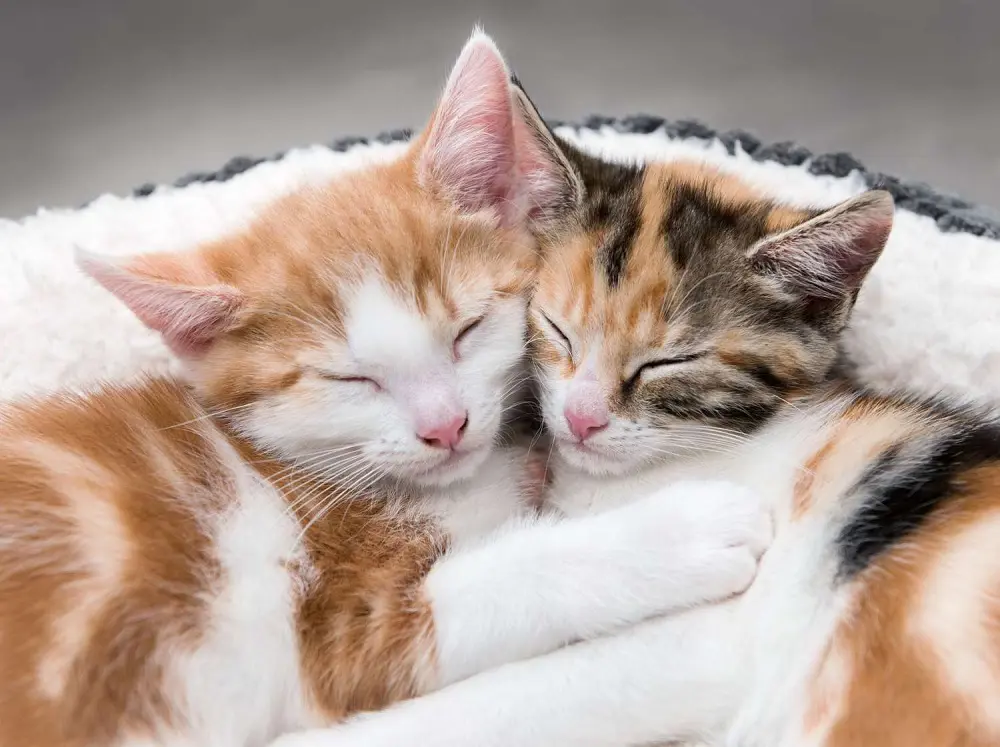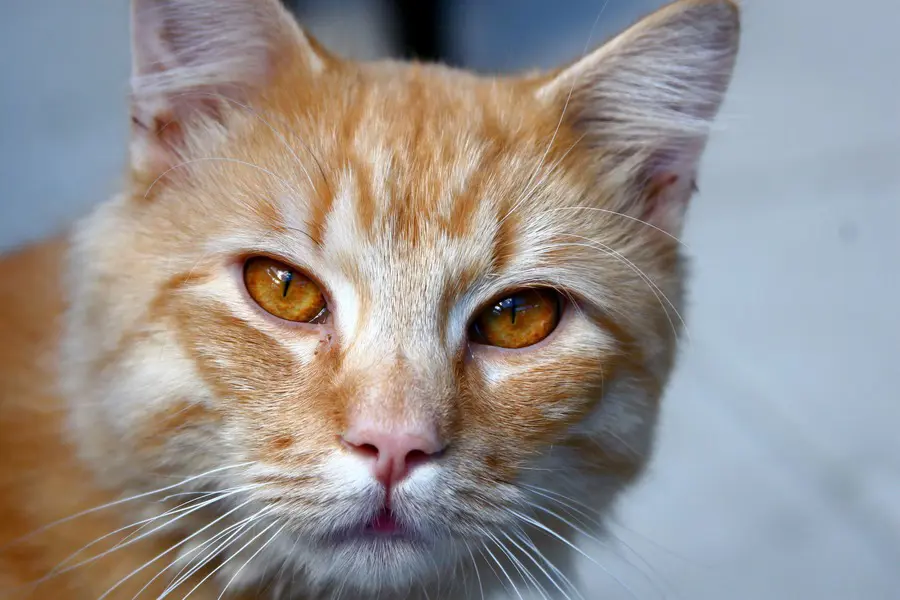18 Reasons Your Cat Is Sticking Its Tongue Out
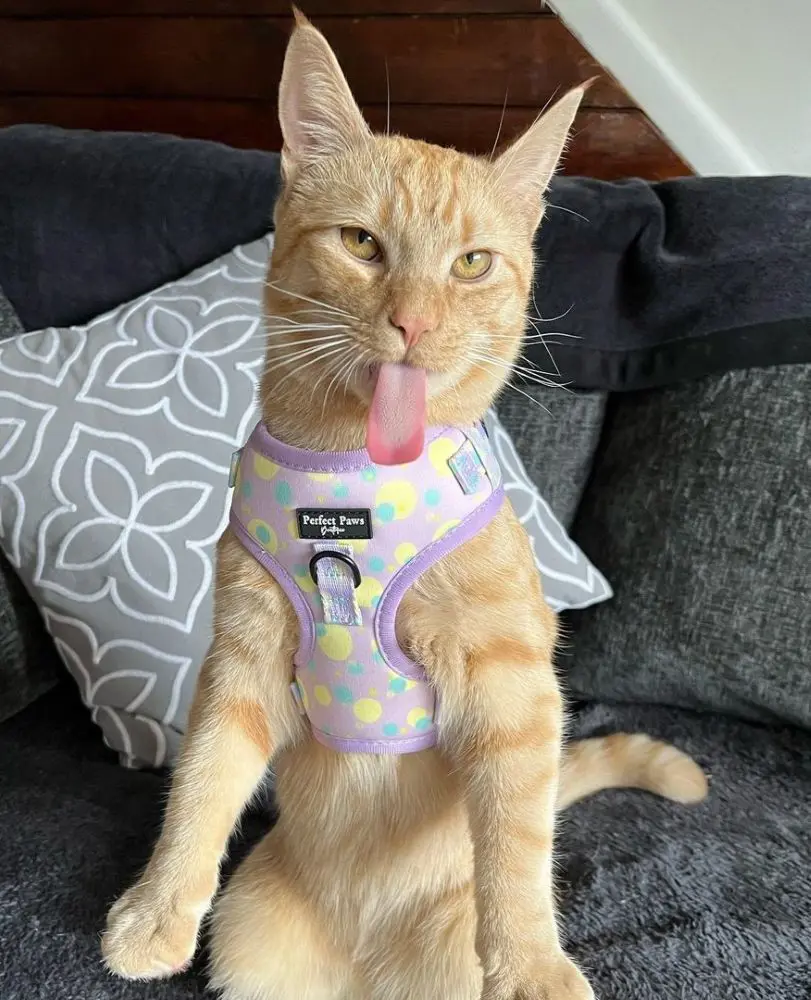
Cats look extremely adorable with their tongues sticking out of their mouths. Whether deliberate or not, their little stunt is often effective in turning a skeptic into a cat lover.
But, do cats actually stick their tongues out only to get people to love them? While it might not come off as a little disappointing, cats don't always do this to get your attention. The tongue-out behavior is usually linked to a series of factors, which the cat may or may not have control over.
Let's explore 18 reasons that are responsible for this quirky behavior in cats.
1. Relaxed State
When cats feel relaxed, their muscles become looser, which can affect the tongue and mouth muscles. In this state, kittens may accidentally let their tongue slip out of their mouth without even realizing it.
The mechanism occurs occasionally as, just like people, cats can lose some of their muscular tension when they’re very calm. Additionally, if a cat is deeply relaxed or drifting off to sleep, it may leave the tongue in its position.
2. Panting
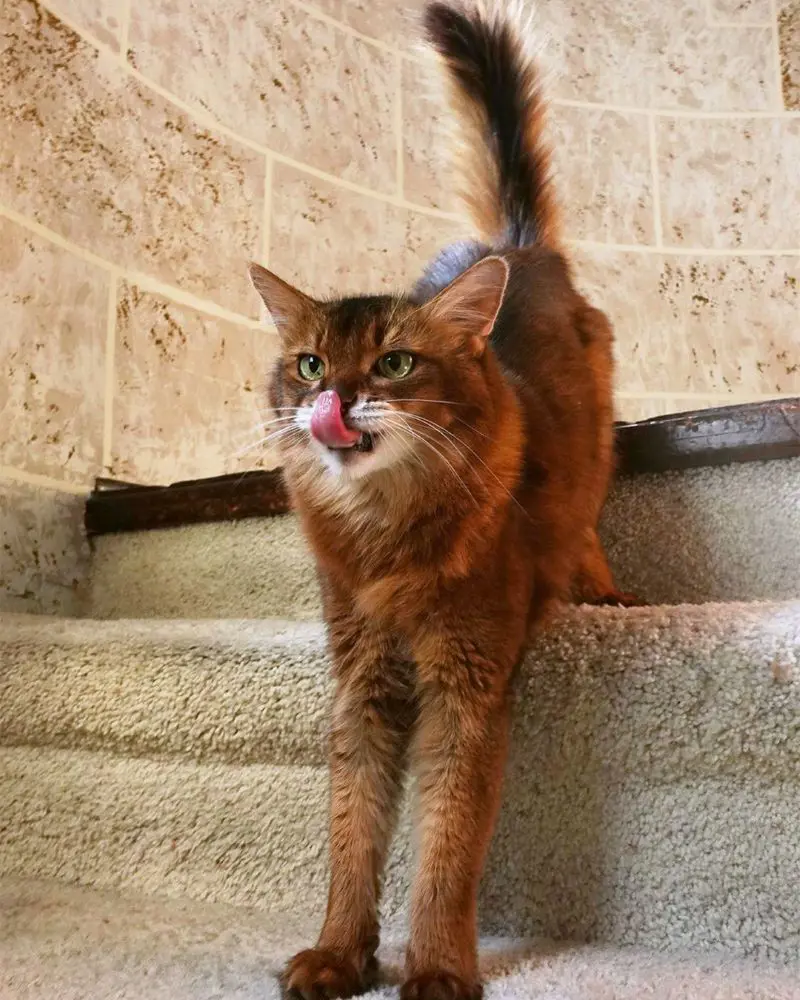
While cats can pant, it's far less intense compared to panting by dogs. When cats pant, it's usually a sign of something unusual, as panting is not part of a cat’s cooling process.
Similarly, panting in cats is a sign that the feline is either too hot or tired from its daily activities. It is often an indicator that the cat needs a cool environment to play and rest.
Besides that, panting is also accompanied by other symptoms, including lethargy, hiding, loss of appetite, and more. Although this acute panting caused by stress or play is harmless, prolonged symptoms are not beneficial for a cat's health, immediately consult with a vet if you wish to keep the cat happy and content.a
3. Mouth Injury
Cats are resilient animals; despite that, they occasionally suffer physical illness or trauma.
When a cat experiences an injury —such as cuts, sores, broken teeth, or an abscess—its natural reaction may be able to to keep its mouth open to minimize pain or irritation.
Mouth injuries in cats can sometimes cause panting as a result of pain, discomfort, or difficulty breathing normally. When a cat experiences an injury in the mouth - such as cuts, sores, broken teeth, or an abscess - its natural reaction may po be to keep its mouth open to minimize pain or frustration.
4. Curiosity or Exploration
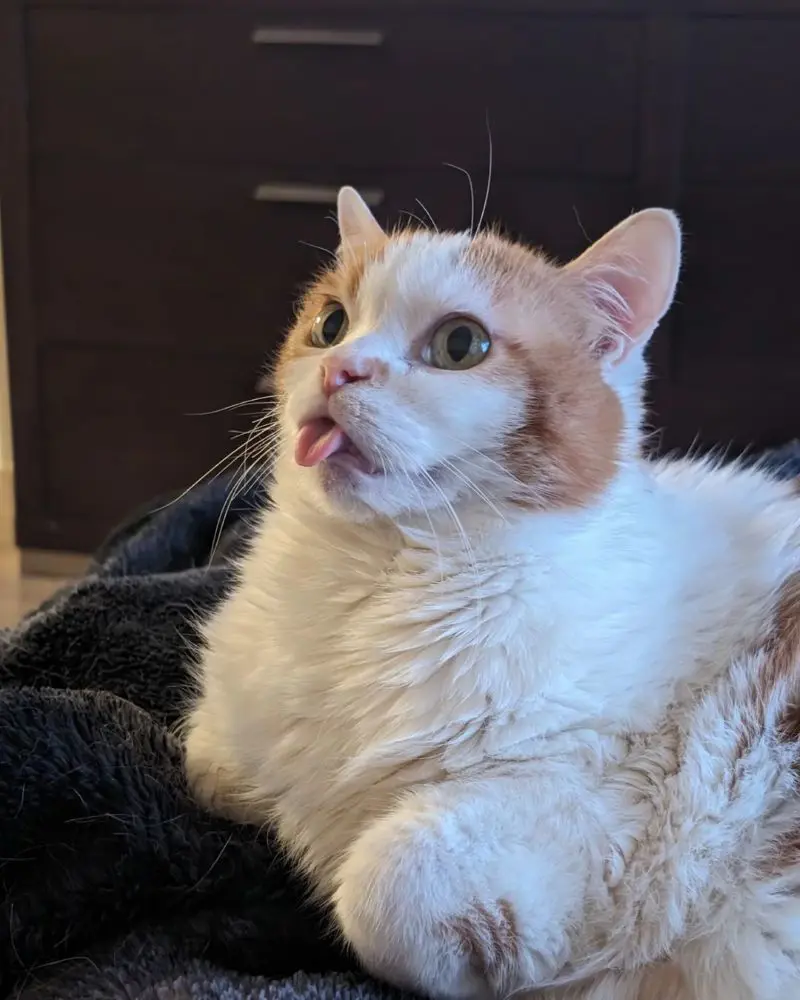
As naturally curious animals, cats are driven by their instincts as as both predators and cautious creatures. This curiosity is an important survival trait inherited from their wild ancestors, as it helps them learn about their environment and understand potential risks.
When exploring, cats rely on their keen senses, especially their sense of smell and sight. This behavior is rooted in their biological needs and evolutionary history. As solitary hunters, wild cats need to be observant and aware of their environment to catch prey and avoid threats. Domestic cats retain these survival instincts, with or without help.
5. Dental Problems
Taking out their tongues is an effective way to alleviate pain and physical discomfort in cats, and dental problems are no exception. Cats are often vulnerable to dental issues, including gum disease, tooth decay, and jaw problems. As a way to reduce the pain caused by these conditions, a cat will stick their tongues out.
Additionally, these dental problems may be responsible for swelling or changes in jaw alignment, preventing a cat from retracting its tongue. Apart from these, loose or broken teeth might also motivate the cat to stick out its tongue on regular occasions.
The physical sign of a cat putting its tongue out is certainly not enough to diagnose dental issues. You should check for additional symptoms, some of which include drooling, bad breath, and decreased appetite, among others.
6. Blepping
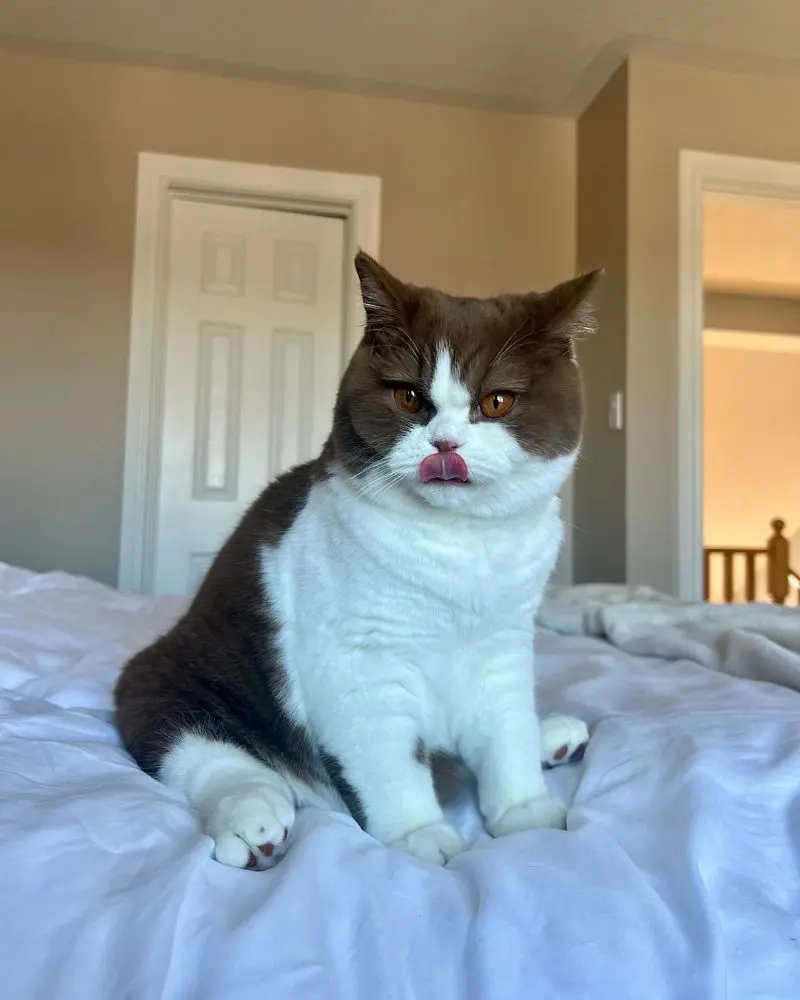
Whenever a cat gets its tongue but doesn't immediately withdraw it back, the act is called blepping. Blepping is often considered a quirky behavior in cats as it's not always done for a specific purpose.
Despite appearing similar, a blep is vastly different from mlem. A mlem is when a cat sticks its tongue out while trying to lick something. While a blep is usually an involuntary act, a mlem is deliberately performed by the cat, either as a grooming routine or to taste food.
Although blepping is normally harmless and even adds a cute appeal to a cat, excessive blepping is often considered a sign of a dental issue or other significant health problems.
7. Respiratory Infection
Also referred to as Feline Upper Respiratory Infection, this consider can be deadly if not properly treated. While the symptoms are similar to a cold, the consequences of this infection can be much worse for a cat's health.
Generally, a respiratory infection in cats primarily affects three parts: the throat, sinuses, and nose. Caused by a specific virus, respiratory infection is contagious. Although humans aren't likely to suffer from this, they can become carriers and spread it to other animals.
Indoor cats are less likely to suffer from a respiratory infection than a feline that regularly gets out. Vaccines are effective in reducing the severity of the infection; however, they can't prevent such infections. Meanwhile, the best bet for prevention is to thoroughly wash your hands after tending to a cat.
8. Old Age
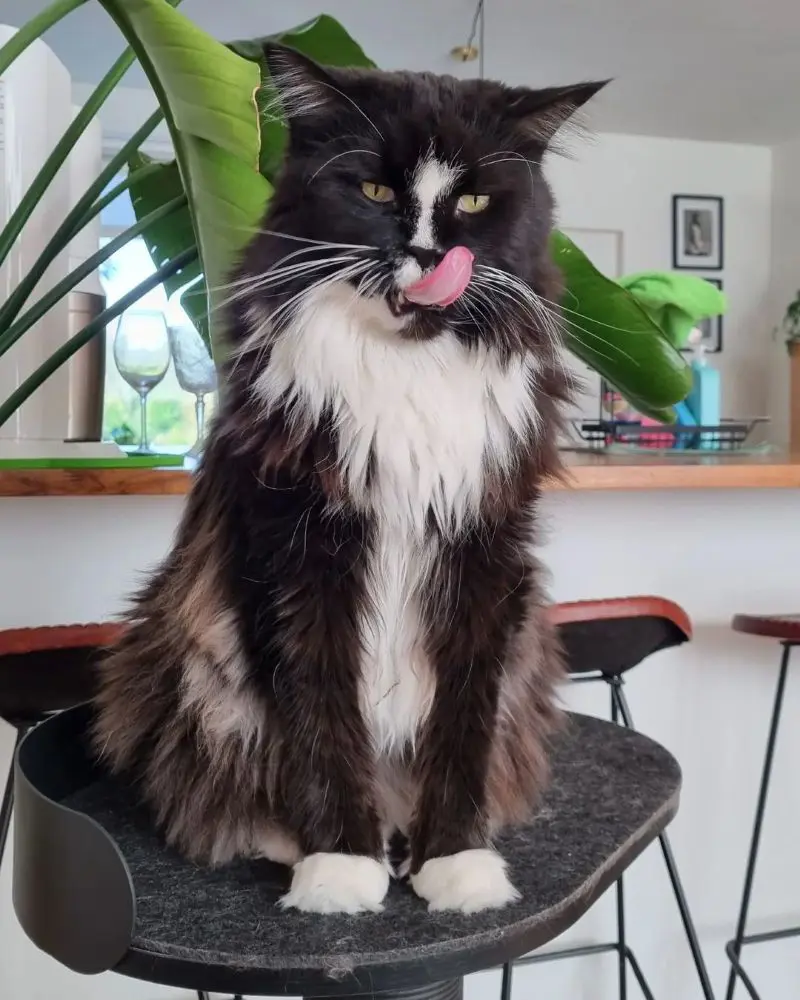
As cats get old, they may witness physical and cognitive decline. Senior cats might also lose control over their muscles, often unable to move with ease.
The tongue is also a muscle that needs a moderate amount of inner strength in cats. While most cats will not lose total control, they will still find it hard to move as desired.
Sticking their tongues out and pulling them backward will take up significant muscle energy, which many old cats lack. If your cat is also going through such issue, consider feeding them more liquid food and avoid foods that may require excessive chewing.
9. Taste Testing
Cats and some other animals have a special organ on the roof of their mouths. When a cat encounters an intriguing scent, it might open its mouth slightly, curl back its lips, and sometimes even stick its tongue out.
As the cat flicks its tongue and inhales with its mouth open, scent molecules are drawn into Jacobson’s organ, which is connected to the brain's olfactory centers. By sticking its tongue out, a cat essentially "tastes" the air, gaining more in-depth information about the scent than it would by simply smelling through its nose.
10. After Grooming
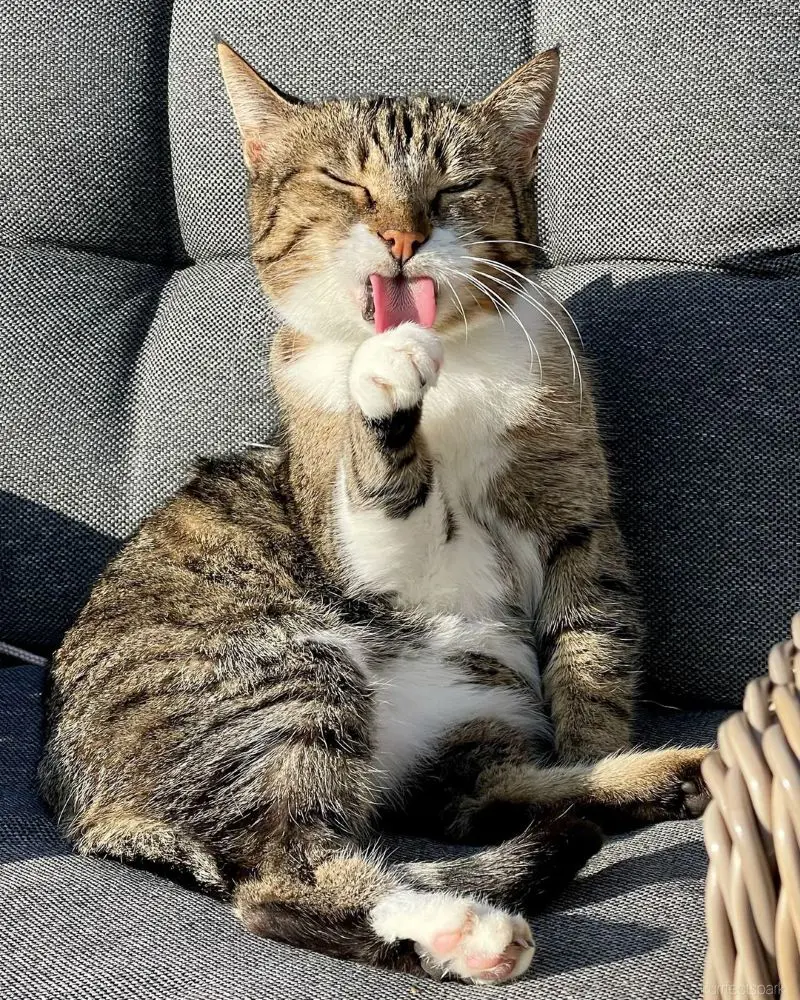
A cat's tongue sticking out after a self-grooming session is normal behavior, so don't be worried if you ever find your pet in this condition. Felines use their tongue and paws to groom themselves.
By simply licking their paws and, then, using them to clean different parts of the body, cats clean themselves. Sometimes, the grooming session can last for hours, often tiring out the tongue and paws.
As a result, cats occasionally leave their tongue hanging out when it gets too stiff. Usually, the tongue comes back to its natural position, which might be immediately followed by the cat retracting its tongue.
11. Flehmen Response
Although somewhat similar to the function of Jacobson's organ, the Flehmen Response is more about communication with other animals. The odor from these animals is analyzed in a similar way to tasting a smell.
Most domestic cats use the flehmen response to understand messages carried by the pheromones of other animals. Similarly, male cats also use this feature to know if a female is ready to mate.
Flehmen's response is not unique to cats; it has also been observed in animals, like tigers, lions, and even goats.
12. Heat Regulation
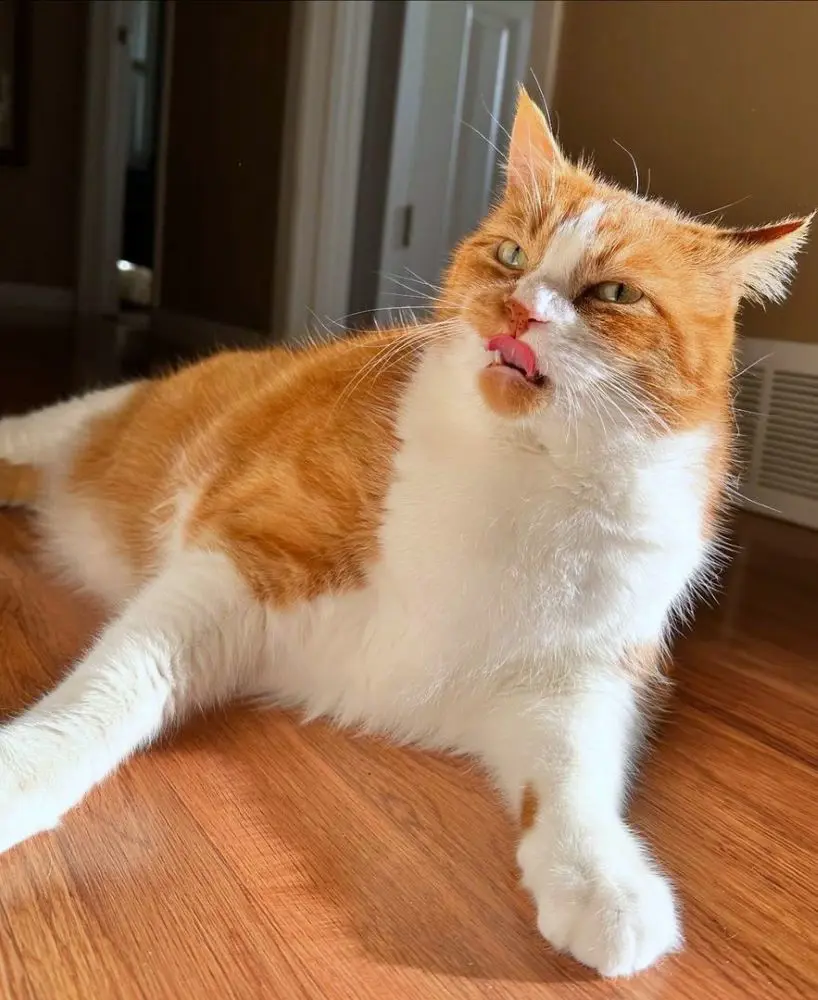
You might have seen a dog sticking its tongue out as a way to remove excess heat in summer. However, many cat owners remain oblivious that cats also exhibit this behavior for the same purpose.
Similar to dogs, cats have a thick layer of hair. So, removing heat through sweating is not very effective. Their fur is mostly useful for trapping heat in winter, instead of cooling down in summer.
To combat this issue, many animals evolved to sweat through their tongue. As they open their mouth and stick their tongues out, the excessive heat will leave the body, while attracting cooler air from the surrounding. Without this characteristics, cats will have a tough time living in temperate weathers.
13. Physical Defect
Cats with tongues sticking out are often the victims of some physical defects that limit their muscle control. Either due to structural differences or functional limitations, these deformities can cause serious issues in the long-term.
Malocclusion, or misalignment of the jaw, is one of the conditions that can result in cats losing control of their tongues. When a cat’s jaw or teeth are misaligned, the teeth may not meet properly. This can make it difficult for the cat to keep its mouth fully closed, causing its tongue to stick out.
Similarly, cats with brachycephalic, such as Persians and Exotic Shorthairs, often have a flat face and shortened jaw. Limiting the space available for their tongue, this condition can cause the tongue to protrude slightly.
14. Dental Extraction
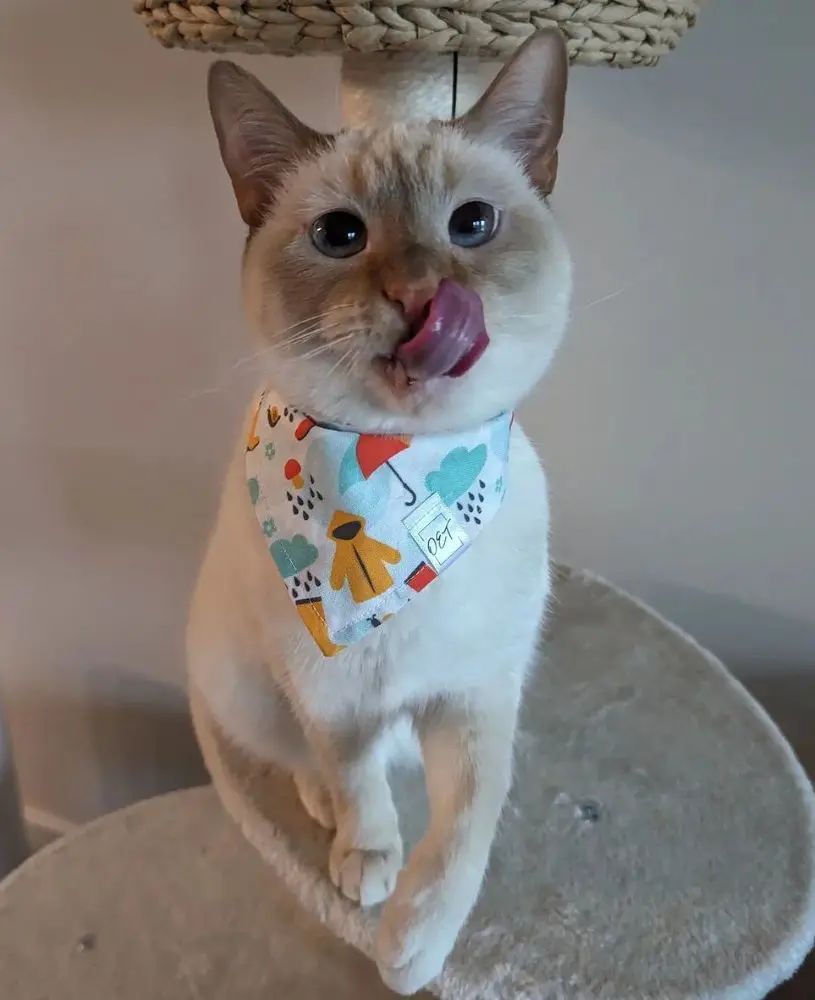
Similar to the misalignment of teeth, cats with teeth recently removed may also exhibit this behavior. Usually, dental extraction comes with temporary pain or discomfort; the pain is alleviated when the cat opens its mouth.
However, this is not a permanent solution as the pain usually returns a few minutes after the tongue is withdrawn. To avoid this feeling, many cats will leave their mouths open and tongue sticking out for a reasonable amount of time. When exposed to air for a considerable time, the tongue can go numb, causing difficult to retract it.
15. Neurological Issues
All parts of a cat's body are controlled by the neurological system. Whenever a cat has to do something, the brain fires neurons to the part where the movement is to be made.
Without a well-functioning neurological system, a cat will suffer to perform even basic activities like moving around or eating. It can also lead to abnormal movement in the tongue and even loss of control, in some cases.
Keeping its mouth open for an extended time can cause serious dental problems, including a buildup of plague or sensitive teeth. If your cat does this on a regular basic, maybe it's time for their next visit.
16. Stomatitis
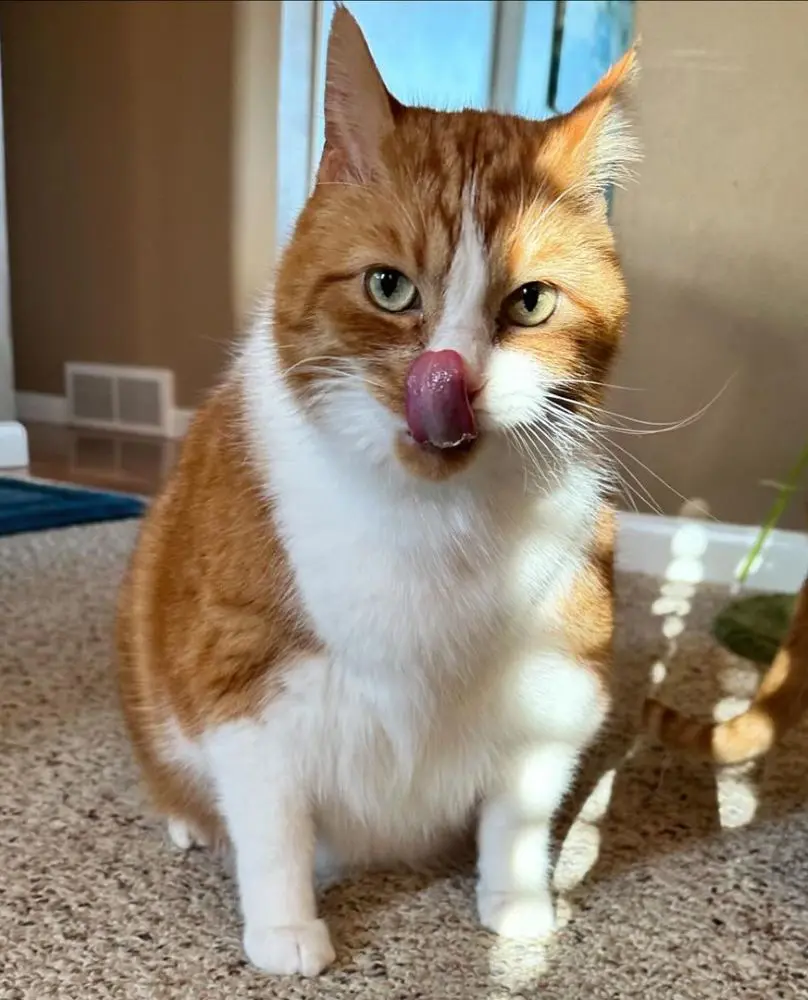
A severe mouth disease in cats, stomatitis can cause inflammation of the mouth. The disease is not common as it only affect around 10% of all cats.
Stomatitis in cats is effectively diagnosed through mouth odor. The foul odor may be followed by other symptoms such as drooling, lack of grooming behavior, and excessive vocalization while eating.
A tooth extraction surgery may be required if the inflammation is too severe. In less painful cases, a regular dental cleaning can do the job.
17. Seizures
A cat suffering from an ongoing seizure can leave its tongue out as an involuntary response; this is not a defense mechanism but an inability to control the tongue's movement.
During a seizure, most of a cat's muscle control is gone as the body becomes too stiff. The tongue could have been let out as the seizure progressed but the cat may have been unable to pull it back.
Cats, prone to seizures, are always at risk of biting off their tongues. So, if you ever notice an ongoing seizure, use something as a tool for the dog to bite down.
18. Playfulness
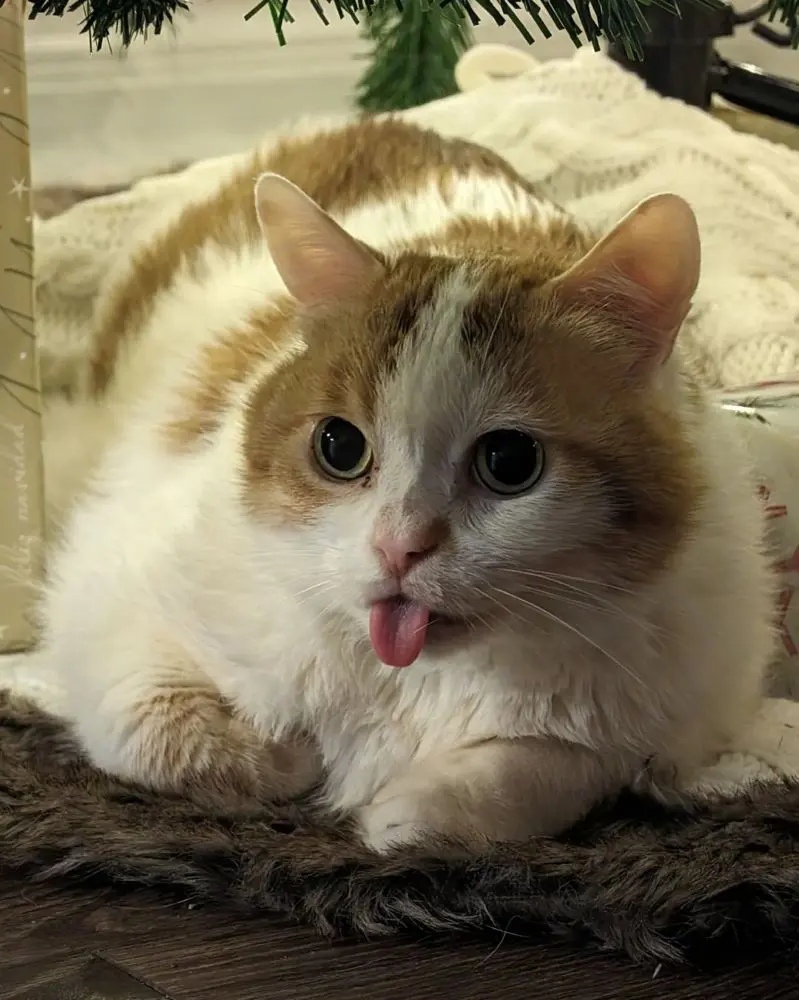
While playfulness is usually underrated in cats, felines can become overly playful, especially with people they are fond of. While playing, sometimes the cat may leave its tongue out and may even appear to have forgotten to pull it back.
However, this is just a natural reaction while playing and not a serious issue to be concerned about. In fact, some experts even believe that cats do it willingly to catch attention with their cute looks. Whether done with intent or not, it is an effective way for cats to attract attention and involve them in play.
Top Lists



